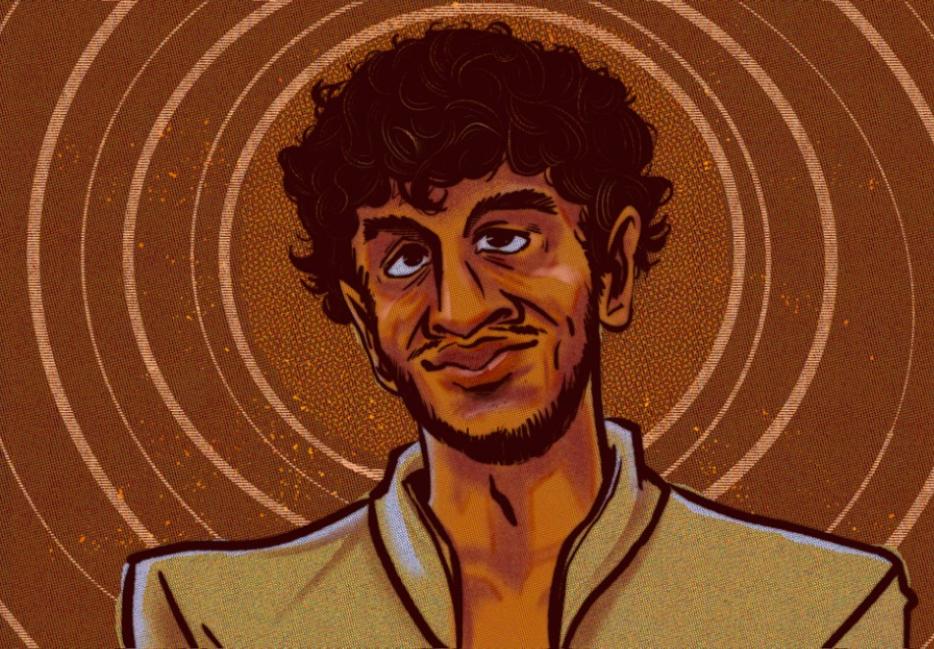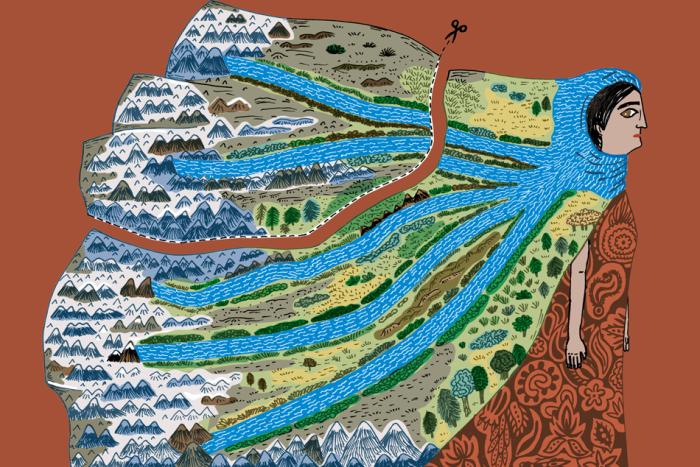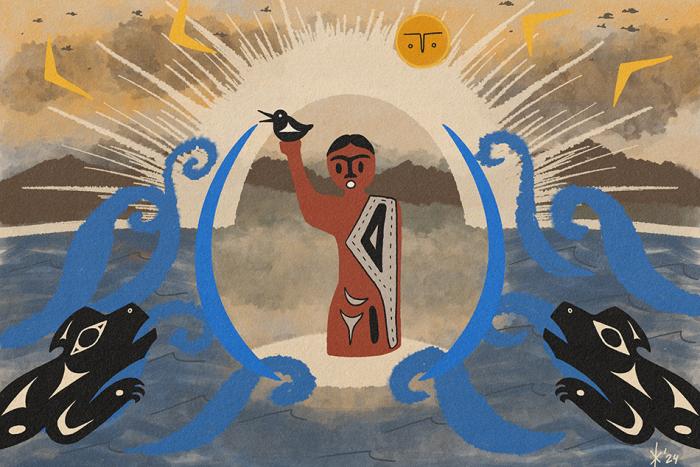Welcome to Wayward Watching, a column on the seen and unseen in film.
The French novelist Gustave Flaubert’s mother apparently once reproached him for working too hard on Madame Bovary: “Your mania for sentences has dried up your heart.” You could say of Salvador Mallo, the protagonist of Pedro Almodóvar’s Pain and Glory (2019), that his heart is dry, but not because he has been busy ironing out the wrinkles in his sentences. He hasn’t written a word since his mother died four years ago, and a surgery has only worsened his persistent headaches and back pain. When we meet him, he is all too ready to ignore his prescribed pills and ask an actor friend for some heroin, though he has never once smoked crack in his six decades on earth. Another friend asks him what he plans to do with his time, now that he isn’t writing or filming anymore. “Live, I guess,” Salvador replies, and then closes his eyes, as though unhappy at the prospect.
As a character, Salvador (played by Antonio Banderas) doesn’t need to persuade the audience of his twin vocations by showing up with a crew and camera somewhere, or wrestling with a blank document on his desktop screen. Deep inside the cocoon of his apartment, he is sustaining himself for the most part on memories—there is a mesmerizing backstory involving a ten-year-old Salvador, his long-suffering young mother (played by Penélope Cruz), and an indigent house painter who befriends the Mallos—so much so that one can’t imagine Banderas needed to prepare for the part by tailing a professional writer or a filmmaker (indeed someone like Almodóvar) for a while. Writers and filmmakers have the most visually unappealing of work routines, and on the days they’re wrapped up in a project, they are probably at their compulsive worst. Who doesn’t want to see a montage of the three leads in Challengers, all of them tennis players, warm up with a few volleys before a match? On the other hand, if I think of subjecting viewers to a shot of a writer agonizing over a paragraph before deleting it from a piece, or a time-lapse video of a director scrutinizing multiple takes of one scene with his editor and collapsing on the couch, the word “torture” comes to mind. I remember watching a Bollywood movie a couple of years ago where one of the four leads, a man, is supposed to have quit a lucrative job to write a novel full time. Apparently the only way to make him a plausible character was to have his best friend, a woman, and his girlfriend compete with each other to be the first to read his “draft.”
Writers can make for intriguing characters onscreen, but only when they aren’t being sentence maniacs. In Paolo Sorrentino’s The Great Beauty (2013), Jep Gambardella (Toni Servillo) wrote a critically acclaimed debut novel at twenty-five, loftily titled The Human Apparatus. He moved to Rome soon after to work as a theatre and art critic, and hasn’t published another book now in forty years. When a magazine editor suggests that Jep’s career hasn’t quite lived up to its early promise, he doesn’t take offence. “Maybe I just don’t have much to say,” he replies. And yet the film implicitly rejects his belief. His long melancholy asides to friends might as well be paragraphs on a page. Each time you watch him stop on his nighttime strolls across Rome to note something quaint, or tell a woman the story of his first kiss, you can sense that he is gathering material for another novel. Jep might feel that he never got around to writing another book because he went out every other night, but had he stayed in alone, we wouldn’t see him shake his hips in a conga line, host a dinner for a hundred-year-old nun in his apartment overlooking the Colosseum, or cry in the rain at an old lover’s funeral—we wouldn’t have the movie.
What does art demand from us? With Jep, one feels that he dreaded staying in partly because he identified himself more as an author than a writer. There is, to be sure, an element of arrested development to his career: the longer he put off working on a second book, the deeper he seemed to retreat in the shadow of his published novel. Much like Truman Capote in ‘60s New York, Jep brags about being powerful enough to “make or break any party in Rome.” He has replaced his mania for sentences with something else: the vacuous ceremonies of excess and decrepitude in Berlusconi’s Italy. One moment he wants to partake in a couple’s newfound happiness—“What will you two do tonight?”—only to end up looking mournful in a strip club the next moment. His epiphany towards the end of the movie is somewhat practical. “It is just a trick,” a circus master tells him: sometimes you don’t need to take art as seriously as life.
In Pain and Glory, Salvador needs to go out more. He thinks of his mother reproaching him in her last days for using her stories as grist for his work: “I don’t want any of this in your films.” One night, inside his rococo Madrid apartment, he meets an old boyfriend, Federico, whom he’d nursed through an addiction once. Now Federico is sober, married, and the father of two twentysomethings in Argentina, while Salvador is single, forlorn, and grappling with a recent taste for heroin. Their encounter, at once tender and tragic, marks a point of no return: we watch a writer transition into a character who takes over the story. You can apologize to a parent for never changing your ways, but how does one blame a lover, years after a stormy relationship, for not changing soon enough? Once Federico leaves, Salvador flushes his drug stash down the toilet. He calls up his doctor and admits that his back pain has tormented him all these years. He realizes that he’d given up on writing because he was stuck in a loop. He learns to stop brooding about the past in his apartment.






